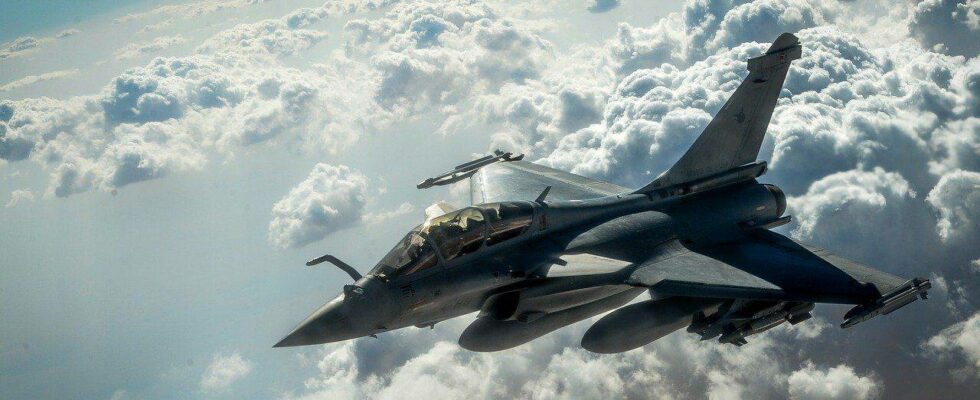(AOF) – Dassault Aviation has taken stock of its 2023 commercial activity. The aircraft manufacturer indicates that 60 Rafale have been ordered (42 France, 18 Indonesia) compared to 92 Rafale Export in 2022. 18 additional “Rafale Indonesia” have entered into force on January 8, 2024 and are not included in the 60 Rafale ordered in 2023. In addition, 23 Falcon were ordered, compared to 64 in 2022. 13 Rafale (11 France, 2 Export) were delivered, for a forecast of 15 deliveries , against 14 Rafale (13 Export, 1 France) delivered in 2022.
26 Falcons have been delivered (for a forecast of 35) compared to 32 Falcons in 2022.
Dassault Aviation indicates that as of December 31, 2023, the order book includes 211 Rafale (141 Export, 70 France) versus 164 Rafale as of December 31, 2022, and 84 Falcon versus 87 Falcon as of December 31, 2022.
The 18 additional “Rafale Indonesia” which entered into force on January 8, 2024 are not included in the 211 Rafale.
AOF – LEARN MORE
Learn more about Dassault Aviation
Key points
– Centenary aeronautical group with more than 2,100 civil aircraft and 1,000 military aircraft in service, delivered over 100 years in 90 countries;
– Activity of €6.9 billion carried out 9/10ths from exports, covering upstream (design and development) and downstream (sales and support), from Rafale combat aircraft to high-end business jets Falcon and military drones;
– “Architect of the future” business model based on the civil/defense duality and specific by the distribution of profits into 3 equal parts – participation and profit-sharing for employees, dividends for shareholders and taxes to the State;
– Capital held 62.2% (76.9% of voting rights) by the Dassault family and 9.9% (6.1% of voting rights) by Airbus, Eric Trappier being chairman and CEO of the board 9 directors and Charles Edelstenne, honorary chairman of the board;
– Very healthy balance sheet: €233 million in net debt compared to €5.8 billion in equity and €7.7 billion in available cash.
Challenges
– Operational transformation strategy “Managing our future” in 4 areas: culture- skills- organizations, digital tools- processes- innovations, industrial tools, program management, facilitated by cooperation with Dassault Systèmes for collaborative platforms and big data;
– Innovation strategy integrated into the economic model:
– Self-financed R&D at 8.3% of revenues and focused on the Falcon 6X and 10X, on the Rafale F4 standard and the SCAF,
– InnoLab approach focused on platforms for integrating technological breakthroughs with 3 focuses – on-board artificial intelligence via the “man machine learning” upstream study plan, decision-making via data and hydrogen,
– collaborations and partnerships –Cerac, Clean Sky, Sesar;
– Environmental strategy aiming for total carbon neutrality in 2050:
– SAF (sustainable alternative fuels): certification of all Falcons for a 50% SAF/kerosene mixture (the future Falcon 10X operating at 100% with SAF mixtures),
– improvement of aerodynamics (optimization of mass and performance),
– participation in European Clean Aviation research,
– optimization of flight operations (flight plans, air traffic control, etc.),
– storage of CO2 emissions and forest renewal;
– Orders taken of €1.7 billion for 12 Falcons in June 2023, then 26 Rafales for aircraft carriers in July by the Indian government;
– Support for activity through French public investments, from 2023 to 2026, in the European SCAF program (€1.3 billion) and in the Rafale (€11.7 billion).
Challenges
– Aircraft development and production disrupted by tensions in the supply chain;
– Extension of the network of maintenance centers and integration of the 1,400 recruited in 2023;
– Speculation on Rafale orders by Colombia, Serbia, Saudi Arabia and Indonesia;
– Entry into service of the Falcon 6X, after its certification by Europe and the United States;
– After a decline of 30.9% in turnover but an increase of 14% in net profit, 2023 objectives of a delivery of 15 Rafale and 35 Falcon and a falling turnover.
The end of a duopoly?
For several decades, the American Boeing and the European Airbus have shared 99% of the world market for airliners with more than 110 seats. This market is worth more than 100 billion dollars per year. However, this duopoly appears weakened in 2022 for several reasons. First, for the first time, two medium-haul single-aisle aircraft, the C919 from China’s Comac and the MC-21 from Russia’s Irkut, are preparing to enter service. Added to this is the Boeing 737 MAX crisis. With the cessation of deliveries of this aircraft between 2019 and 2021, the production balance has been disrupted. In 2021 Boeing posted 340 deliveries, with Airbus remaining well in the lead, with 611.
